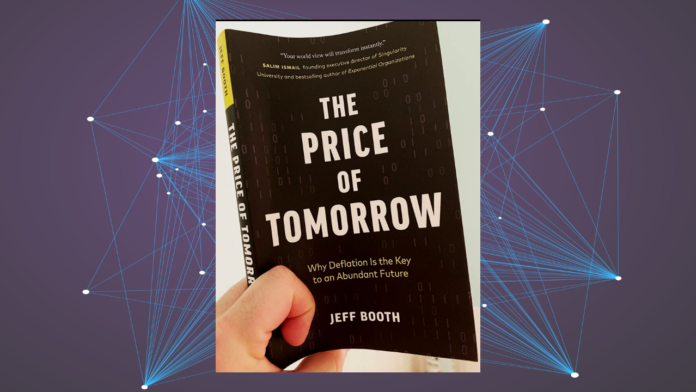The Price of Tomorrow by Jeff Booth: A Visionary Look at Technology’s Deflationary Impact on Our Economy and Society
By Maria Irene
“The Price of Tomorrow” by Jeff Booth is a thought-provoking book that challenges readers to consider the role of technology in our economy and society. Booth argues that we are in a period of transition where technology is driving down the cost of goods and services, but our economic systems are not designed to handle deflation. The book proposes a new economic system that embraces technological progress and uses it to create abundance for everyone.
One of the key themes of the book is the idea that technology is deflationary. Booth explains that technology has been driving down the cost of goods and services for decades, and this trend is only accelerating. He argues that this deflationary force is fundamentally changing the way our economy works, and that our current economic systems are ill-equipped to handle it. Booth points out that our current economic systems are designed for inflation, and that deflation can cause a host of problems, such as stagnant wages, increasing debt burdens, and declining asset values.
Booth proposes a new economic system that is based on abundance rather than scarcity. He argues that technology has the potential to create abundance in many areas of our lives, from food and energy to healthcare and education. Booth believes that this abundance can be shared by everyone, and that it can be used to eliminate poverty, reduce inequality, and improve the quality of life for all people.
Another key theme of the book is the idea that technology is disrupting traditional economic models. Booth explains that our current economic systems are based on the idea that scarcity is the norm, and that we need to create more goods and services to meet the demands of a growing population. However, he argues that technology is fundamentally changing this dynamic. With technology, we can produce more goods and services with fewer resources, and this is driving down the cost of everything.
Booth argues that our current economic systems are not designed to handle this deflationary force, and that they are leading to a host of problems, such as inequality, debt, and financial instability. He proposes a new economic system that embraces technology and uses it to create abundance for everyone. This system would be based on a new type of money that is not subject to inflation or deflation, and that can be used to create a more equitable and sustainable society.
One of the strengths of the book is Booth’s ability to explain complex economic concepts in simple and accessible language. He uses real-world examples and anecdotes to illustrate his points, and he avoids technical jargon and complicated theories. This makes the book easy to read and understand, even for those who are not familiar with economics.
Another strength of the book is Booth’s passion for the subject matter. He clearly cares deeply about the future of our economy and society, and he is not afraid to challenge conventional wisdom or propose bold new ideas. This passion and conviction are infectious, and they make the book an engaging and inspiring read.
Overall, “The Price of Tomorrow” is an important book that should be read by anyone who is interested in the future of our economy and society. Booth’s ideas are thought-provoking and challenging, and they offer a new vision of what is possible if we embrace technological progress and use it to create abundance for everyone. While some readers may disagree with Booth’s proposals or find them unrealistic, the book is nonetheless a valuable contribution to the ongoing debate about the role of technology in our world.


